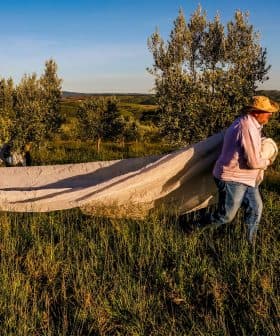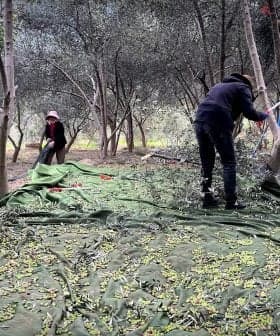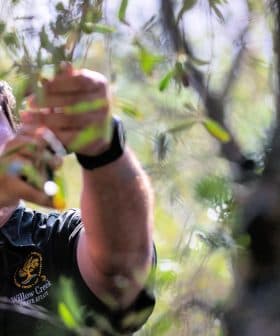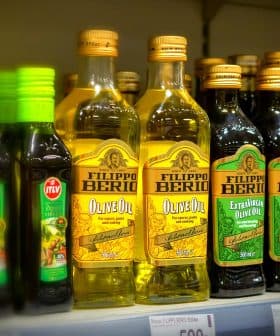World Olive Oil Production Slips, Brazilian Imports Sharply Lower
The latest figures from the International Olive Council predict a 7 percent drop in production and sharply lower imports by Brazil after years of growth.
World olive oil production is expected to decrease by 7 percent in the upcoming crop year, with EU member countries accounting for 93 percent of the total production. Some countries, like Italy and Greece, are projected to see significant decreases in production, while others, like Turkey, are expected to have larger crops.
According to new figures released by the International Olive Council (IOC), world olive oil production is expected to fall slightly for the new crop year to 2,918,000 tons, or 7 percent lower than the recently completed 2015/16 crop year.
Estimates put production from IOC member countries at 2,723,500 tons: 93 percent of the world total. This is an 8 percent decrease from the previous season.
Production in EU member countries will amount to 2,098,500 tons, with Spain being the biggest producer with 1,380,000 tons, only slightly less than in 2015/16 (-1 percent).
Italy’s projected output of 330,000 tons represents a more significant decrease of 30 percent. Figures are also expected to be down in Greece with 260,000 tons for a 19 percent decrease, while Portugal will show a 1 percent increase to 110,000 tons.
As for IOC member countries located outside Europe, production for the 2016/17 harvest season is estimated at 625,000 tons, 3 percent less than the previous year.
While Turkey is predicted to see a larger crop with 177,000 tons (+24 percent), production will be 29 percent lower in Tunisia with a harvest of 100,000 tons. Algeria will also see a decrease of 11 percent, while in Jordan production will be down 22 percent. Figures in other IOC member countries are expected to reveal constant levels or a slight decrease compared to the previous season.
The figures were supplied to the IOC by its members, and are based on estimates only, as it’s too early in the crop year to have a clear idea and the imminent harvest is subject to weather conditions. The IOC will release new data by the end of November which will provide a higher level of accuracy.
Figures released for imports of olive oil and olive pomace oil during the the first ten months of the 2015/16 season (October 2015 –July 2016), reveal increases of 10 percent in Australia, 11 percent in China, 2 percent in the United States and 1 percent in Canada, compared with the same period the previous year.
However, some countries have been importing less olive oil during the period, with the most significant decrease in Brazil: 31 percent less than last year. Japan also recorded a decrease of 9 percent, while Russia imported 1 percent less than the previous year. Within the EU, intra-EU acquisitions have gone down by 8 percent while extra-EU imports decreased by 51 percent.
Another noted trend is increasing producer prices for extra virgin olive oil in Spain and Italy. Prices have risen recently in Spain to €3.18 per kilogram at the end of September, while in Italy, prices reached €3.92 per kilogram.









